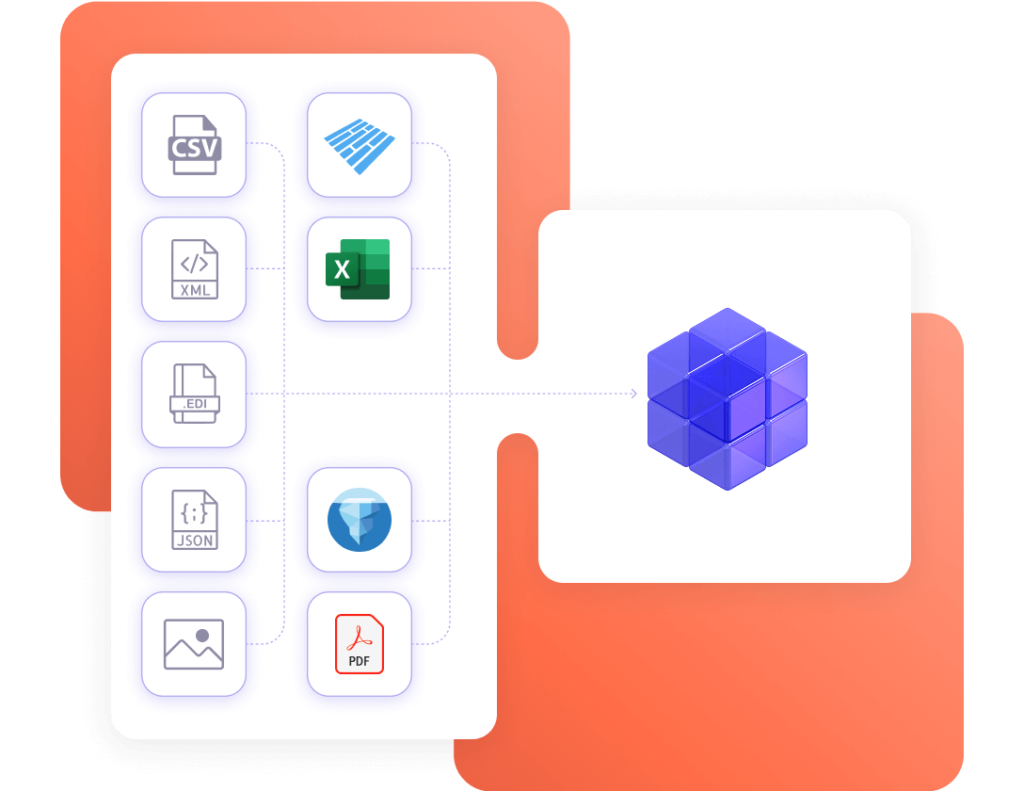Nexsets:
Data Products that Unify Data
Rapidly transform raw data into ready-to-use data products, and streamline data integration and reuse.
Rapidly transform raw data into ready-to-use data products, and streamline data integration and reuse.
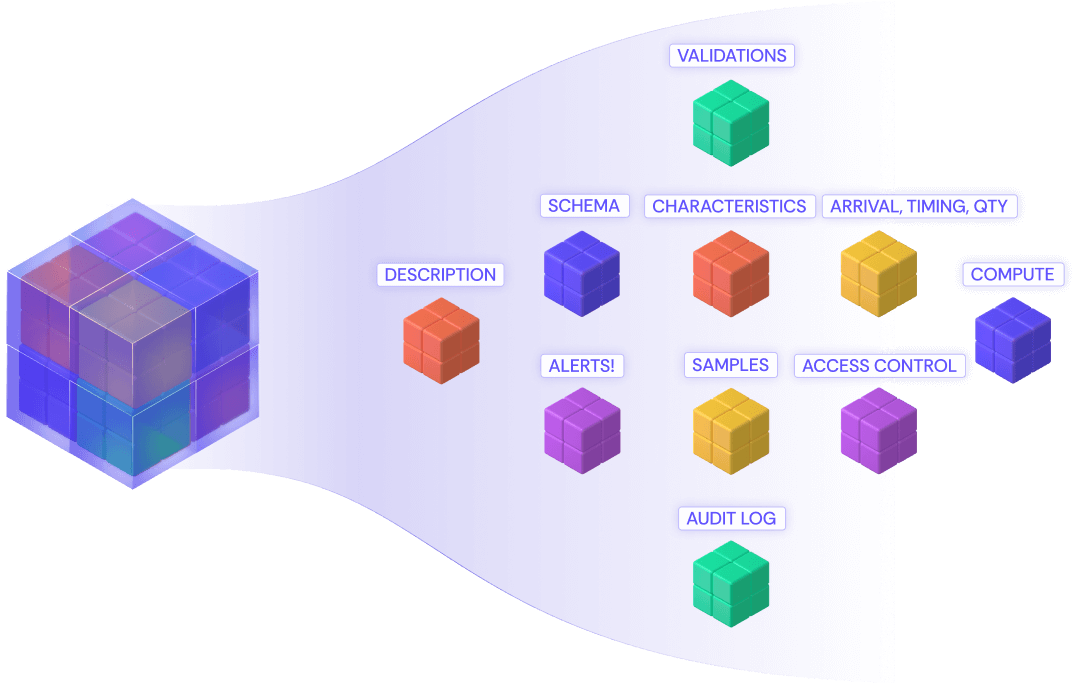
A Nexset is a human-readable, virtual data product that turns any source with any unstructured or structured data into a logical data model independent of formats, protocols, and data speeds. It encapsulates schema, sample data, data validation, error management, audit logs, and access control behind a common interface – all to make data ready-to-use and easily consumable.
Nexsets provide unified, ready-to-use data that completely changes how you integrate data across projects, customers, and partners by letting you focus on the data. Anyone can create Nexsets, and anyone can use Nexsets to access and write data without having to make a copy of the data.
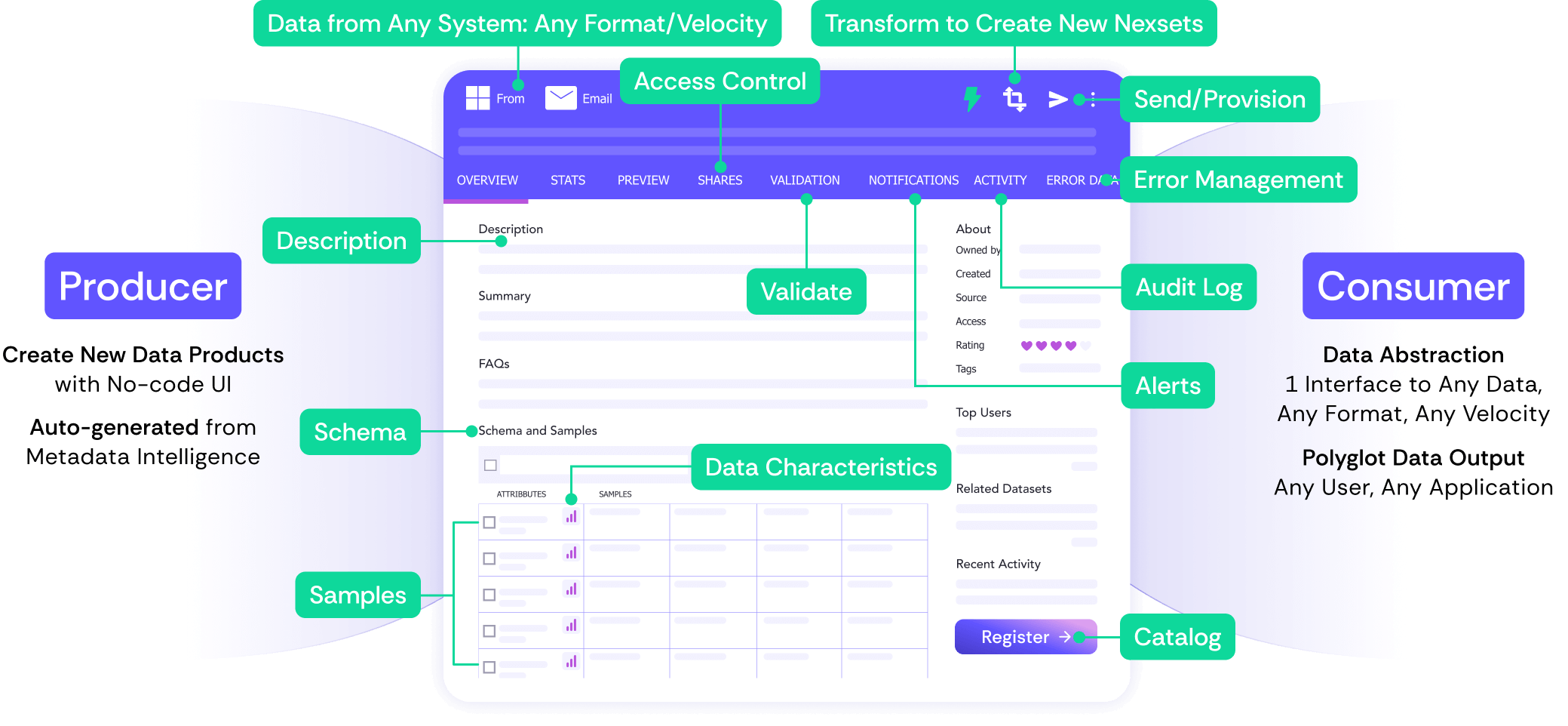
Simply connect to a source using Nexla’s no-code UI and provide the credentials. Nexla does the rest. You can tailor the Nexset to include whatever data you need, and add your own transforms, data enrichment, filter, validation, and other rules. You can even add SQL, Javascript, Python and JSON as needed to create new Nexsets.
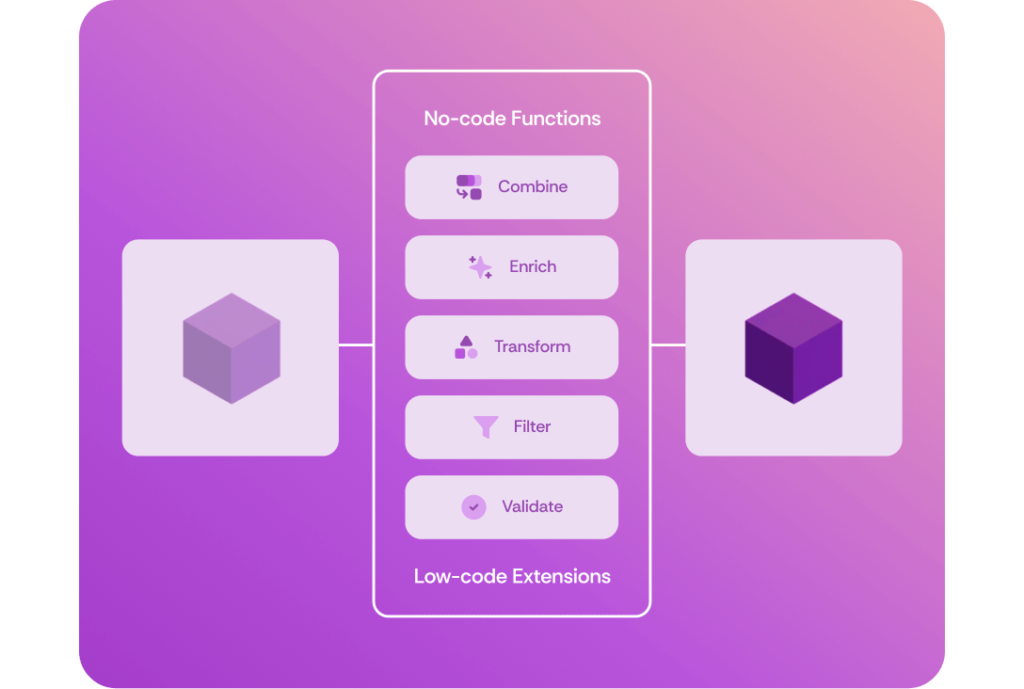
Nexla uses continuous metadata intelligence that analyzes metadata and record-level data to auto-generate a ready-to-use, fully governed Nexset with a logical view of the data that is independent of whatever format or protocol you need to use. Nexsets are also always up-to-date, continuously updated and versioned by Nexla as each source changes.
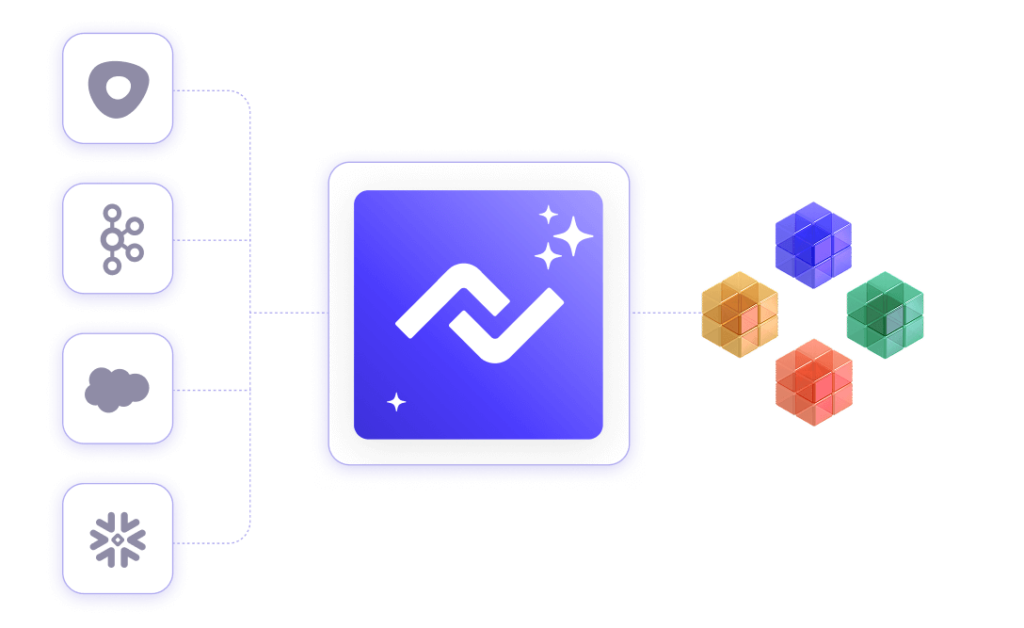
Nexla not only makes data easy to access without having to worry about formats or protocols. It also makes sure data is ready to use. Nexsets are fully governed data products. They include data validation rules that continuously check and fix data quality to help make sure you can trust your data.
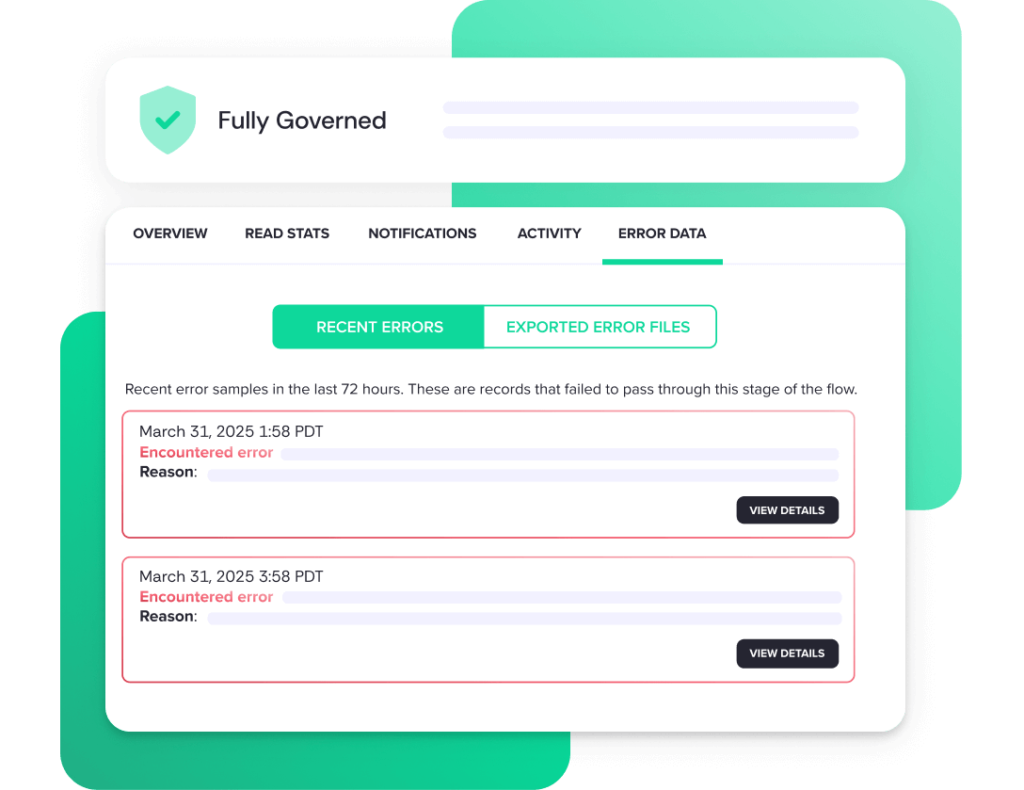
Nexsets are also AI-ready. For example, you can use LLMs to directly query Nexset data and metadata looking for relevant data using Nexla Orchestrated Versatile Agents (NOVA), an agentic interface within the Nexla UI. You can “chat” with your data to analyze it and build transforms, new Nexsets and end-to-end flows for any type of integration. You can also directly query Nexsets to enrich the context of a prompt before you submit it to your LLM of choice.
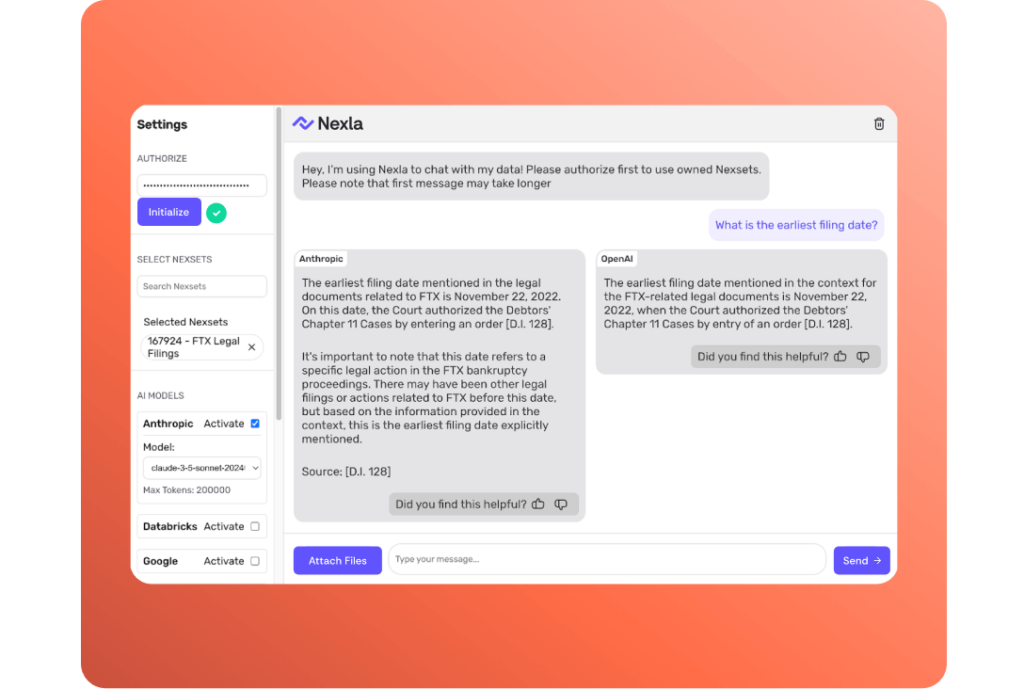
Nexsets turn heterogeneous data in data silos into a unified data model that can be shared and reused across projects and teams. Publish any Nexset into Nexla’s private marketplace with a few clicks and share it with individuals or teams. Consumers easily discover, learn more about, and request access to Nexsets based on their privileges via a simple shopping-like interface. Administrators tailor each marketplace based on each organization’s needs, manage domains, approve publication, and govern all access and usage based on policies.
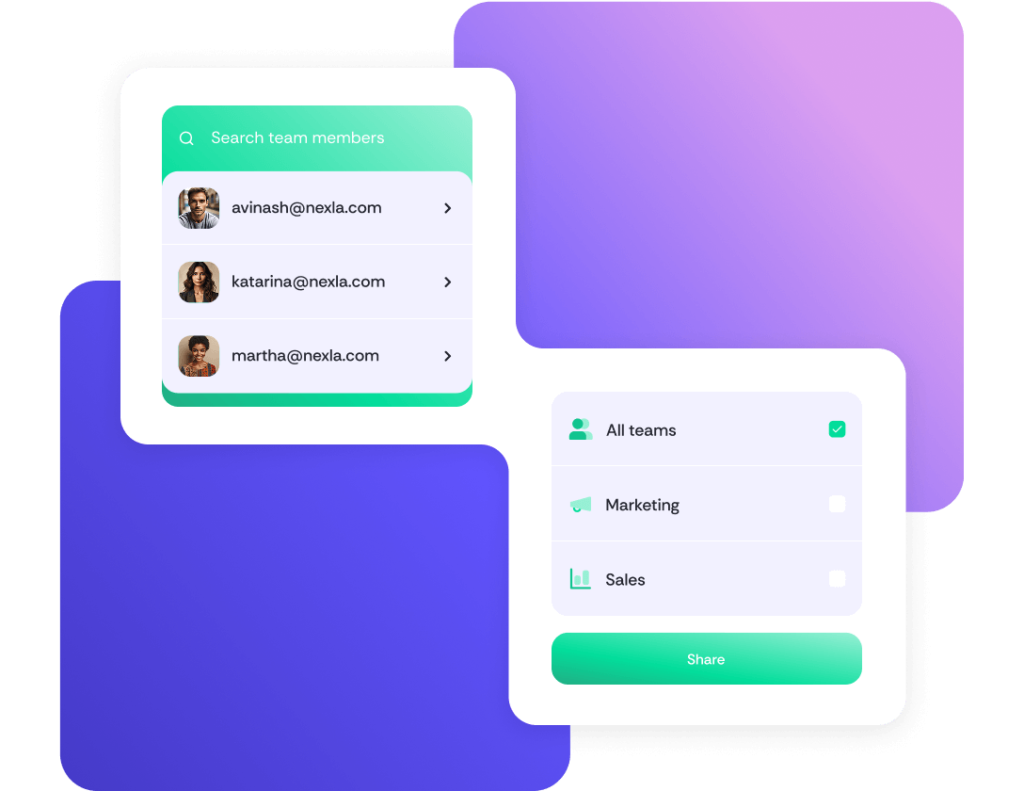
Nexsets provide a collaborative foundation with a consistent interface for everyone who works with the data. The same Nexset or a derived Nexset can be used by teams working in AI, data science, external integration, operational data integration, data engineering, or any other use case.
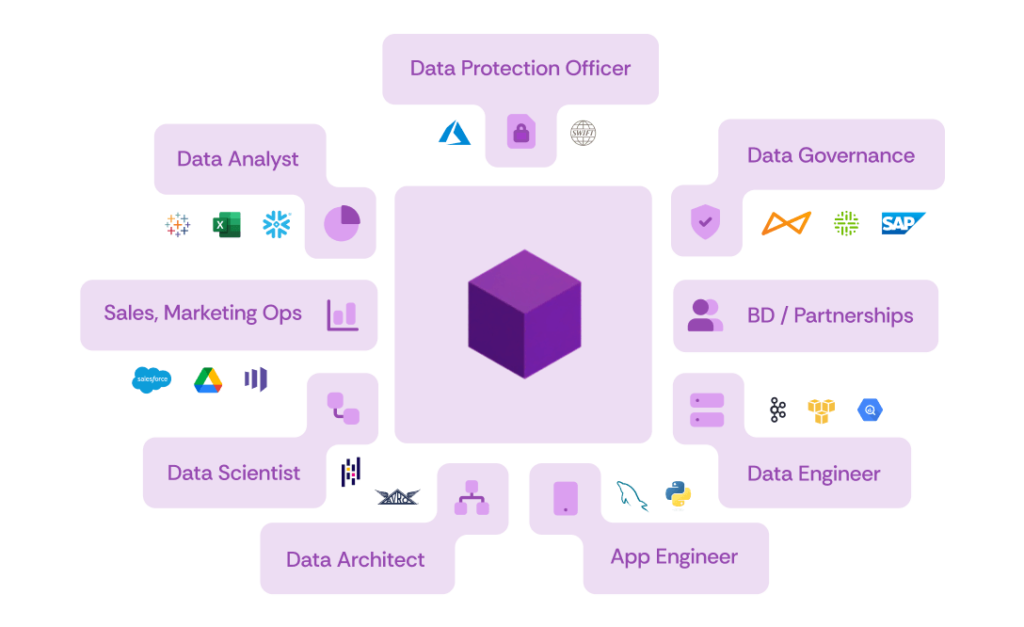
With most integration platforms, the data is tied to a specific type of integration, in a specific pipeline. With Nexla, you can reuse any Nexset in any integration pipeline using any integration style. Nexla is the only converged integration platform that supports all styles of integration – ELT/ETL, change data capture (CDC), replication, R-ETL, API integration, streaming, (S)FTP, GenAI RAG, bring your own (BYO) integration, and more – in real-time or batch.
Just select the style you want to use from pre-configured integration templates. Then create or reuse Nexsets, transforms, and flows, all without coding, in minutes.
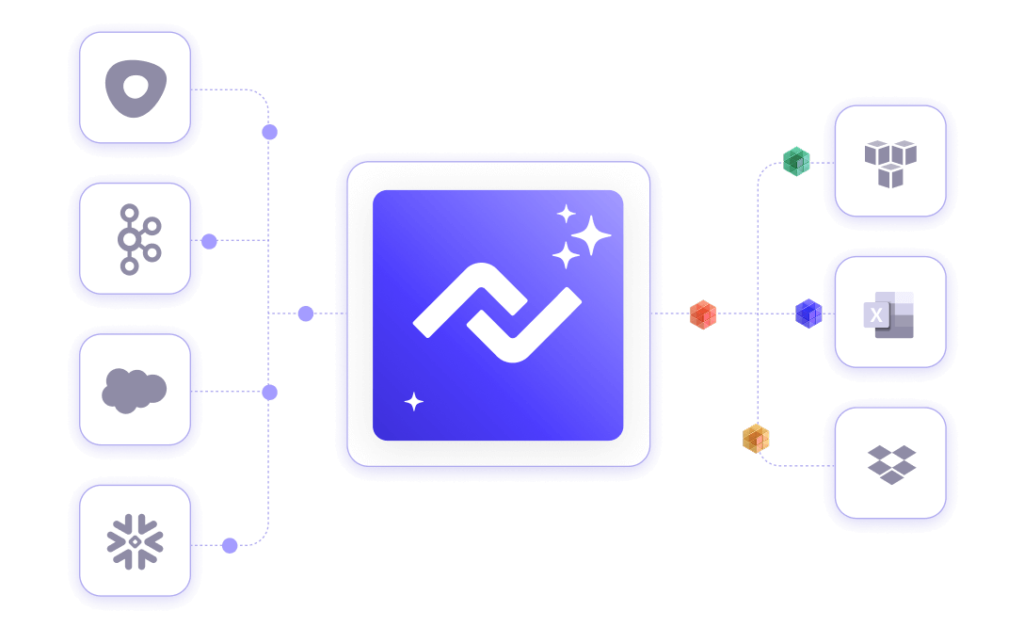
With Nexla, there is no longer a need to deal with heterogeneous schema and structures. Nexsets abstract any source format – unstructured documents, CSV, JSON, XML, Parquet, emails, images – into a unified model managed by Nexla. Users transform and integrate Nexsets without having to worry about source and destination formats. Nexla automatically translates sources into Nexsets, and helps integrate using metadata intelligence.
